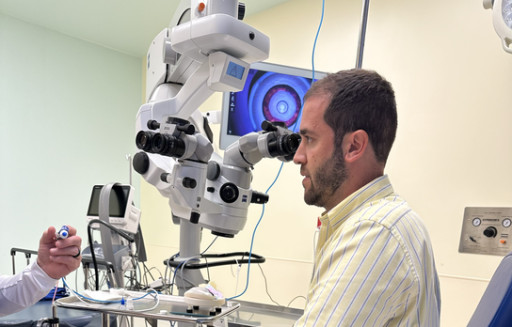All Categories
Featured
Table of Contents

Normal eye exams are necessary for maintaining excellent vision and discovering potential eye wellness issues early. The regularity of these exams can vary dramatically based on a person's age, lifestyle, and total health and wellness. Understanding the advised schedule for eye exams can assist make certain that people of any ages receive ideal treatment and surveillance for their eye wellness.
Newborns and Toddlers (0-2 Years)
For infants and kids, eye examinations are critical for spotting any kind of potential vision issues early. The American Academy of Ophthalmology suggests that a kid's very first eye exam ought to occur at around 6 months of age. During this first browse through, the eye treatment professional will assess the child's visual growth and look for any type of noticeable eye concerns.Following this very first exam, it is advised that youngsters have another eye exam at age three. This browse through will certainly focus on analyzing the youngster's general visual feature, consisting of eye positioning and the capacity to track items. If no problems are found, the following test should be arranged prior to the child starts institution, normally around age 5 or 6.
School-Aged Kids (6-18 Years)
Routine eye tests ought to be scheduled every one to two years as soon as youngsters get to school age. Vision is critical for learning and advancement, and lots of institutions carry out vision testings. These screenings do not change a detailed eye test by an eye care specialist.For youngsters entailed in sporting activities or activities requiring significant visual focus, yearly eye tests might be recommended. In addition, if a kid exhibits indicators of vision troubles-- such as problem reviewing, squinting, or frequent headaches-- a browse through to the eye medical professional should be set up asap.
Young Person (19-39 Years)
Young person commonly have fewer vision modifications than older age groups, but regular eye tests stay essential. The basic recommendation is to schedule an eye examination every 2 years throughout this duration. Individuals with specific danger aspects-- such as a family members history of eye disease, diabetes, or those who use contact lenses-- must consider annual eye examinations.In addition, those who invest considerable time on digital tools might experience digital eye stress. If signs such as dry skin, exhaustion, or obscured vision take place, it may be a good idea to see an eye treatment specialist earlier.
Adults (40-64 Years)
Adults aged 40 to 64 need to set up eye tests every one to two years. Eye examinations can likewise help identify various other common age-related problems such as glaucoma, cataracts, and macular deterioration.If individuals in this age group have danger variables such as high blood pressure or diabetes mellitus, they might call for even more regular evaluations to check their eye health and wellness carefully.
Senior Citizens (65 Years and Older)
For seniors, regular eye exams end up being even more crucial. The American Optometric Association recommends that people aged 65 and older have an eye examination at least once a year.Conclusion.
Recognizing the proper schedule for eye examinations based upon age is crucial for preserving ideal eye wellness throughout life. From babies to elders, regular eye assessments play a critical role in finding problems early and making sure that vision stays sharp. By adhering to these standards and talking to an eye care professional, people can take aggressive steps toward preserving their vision and general health. Whether it's a youngster's initial visit or a senior's yearly check-up, prioritizing eye care is a financial investment in lifelong wellness.Table of Contents
Latest Posts
Choosing the Right Place: What to Think about for Wedding Events, Conferences, and Occasions
Published en
1 min read
A Lavish Escape: The Claridge Indoor Swimming Pool
Published en
1 min read
Experience the Boogaloo: Dining, Drinks, & Sports at FunCity Hotel
Published en
2 min read
More
Latest Posts
Choosing the Right Place: What to Think about for Wedding Events, Conferences, and Occasions
Published Mar 23, 25
1 min read
A Lavish Escape: The Claridge Indoor Swimming Pool
Published Feb 10, 25
1 min read
Experience the Boogaloo: Dining, Drinks, & Sports at FunCity Hotel
Published Feb 09, 25
2 min read